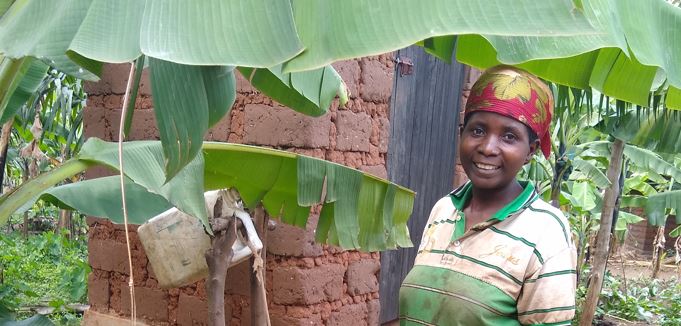Burundi – In some regions of Burundi, only 1 in 5 people has access to drinking water close to home. This is also the case in Bubanza where Join For Water is working with its partner AVEDEC to improve access to water and sanitation.
At the end of 2021, our colleagues went for an evaluation to Burundi They talked to stakeholders at all levels, from governments to users. This yielded useful information about the achievements, the positive or negative aspects and the points for improvement.
There are many sources in the sometimes steep hills, so bringing the water to the people is quite a job. But once the access to drinking water is a fact, people’s lives improve in terms of health and time investment. Yet sustainability and maintenance are not a given, and this is often due to a lack of financial resources. We heard these concerns from the provincial governor, the municipality’s administration, the health centre, the drinking water committees and the inhabitants.
In order to protect a well, it is necessary to establish a sufficiently large perimeter that people or animals are not allowed to enter, in order to avoid pollution. This zone is best planted with trees. But here we come up against land ownership problems: anyone who owns a piece of land around the well will not simply give it up for the community. Expropriation by the municipality is possible, but then there must be a piece of land available elsewhere for the owner who gave up his land.
Drinking water points are vulnerable when it rains and soil is washed away. Therefore, farmers should plant more trees on their fields. And preferably indigenous species, because all too often eucalyptus is still planted. Eucalyptus grows quickly and can be used to make charcoal, but it also absorbs a lot of water.
The municipalities and the drinking water authorities themselves do not have the resources to set up drinking water infrastructure, let alone to carry out repairs. It seems logical that the users should pay for the drinking water, but that is difficult. The amounts are very low, but often still too high for the families that often have to make do with less than three meals a day. However, these contributions are necessary to pay for possible repairs. There is a rule that the poorest and the disabled get free water.
There is still a lot of work to be done in the area of sanitation, especially in the schools: they need ecological latrines.
Polluted drinking water is usually the cause of cholera and it is encouraging to hear that there were no more cases in the places where there will be improved drinking water infrastructure.
But there is still a way to go and we are happy to continue this journey with our partners and the people of Bubanza.

